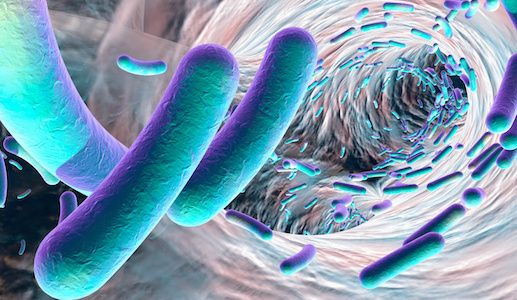What Types of Patients Will Accept FMT as C. difficile Treatment?
Researcher questioned variables that prevent C. diff patients from getting FMT.

Researchers from NYU Langone Medical Center sought to understand what prevented patients from accepting fecal microbiota transplantation (FMT) as an effective treatment for Clostridium difficile (C. difficile)
The team interviewed 267 C. difficile patients to gauge the level of knowledge patients had about the FMT process. The study authors noted that some patients were reluctant to accept this therapy and they wanted to understand what variables played into the acceptance rates for patients.
Surveys were distributed to patients at a Veterans Affairs hospital, a public hospital, and an academic faculty practice. The researchers collected data about patient demographics, experience with complementary and alternative medications and therapies, personal medical history, personal history specifically about chronic diarrhea, and prior knowledge or experience with C. difficile infection.
The survey also included a description of FMT and finally assessed the attitudes of the patients toward FMT and the FMT delivery mode. Researchers attempted to focus the questions on discovering factors that would influence acceptance and perceptions of FMT as well as the general demographic data that may predict acceptance of FMT.
The researchers learned that 12% of the patients were aware of FMT prior to completing the survey and more than three quarters (77%) would undergo the procedure if it were recommended to them. About a third of the patients (29%) were aware of C. difficile before they participated in the survey. While 4% had a personal history with the infection, 8% said they knew a friend or had a family member who had been infected. A total of 9% of patients reported a personal history of chronic diarrhea.
More than half the patients (56%) said they had used alternative medicines, such as acupuncture, Ayurvedic medicine, colonics, chiropractic medicine, homeopathy, or traditional Chinese medicine, and 32% said they used probiotics, such as pill formulations or yogurts.
Most patients who used probiotics did so for their overall health, instead of as a therapy for chronic diarrhea (26 percent vs. 5 percent, respectively).
If a patient had children or had at least a university degree, they were more likely to agree to FMT, the researchers learned. Being married seemed to indicate a willingness to undergo FMT, the researchers found (85% vs. 73%, respectively). Neither a chronic history of diarrhea, nor prior experience with C. difficile infection was found to be significantly associated to FMT acceptance, the researchers reported.
The researchers also asked the participants for their opinions of FMT delivery methods: 71% of those surveys ranked colonoscopy as the most acceptable method, while nasogastric tube was the least preferred.
Negative perceptions surrounding FMT included ideas about disease transmission (mentioned by 30% of study participants) while “dirty/unsanitary” connotations were mentioned by 22% of patients. According to 9% of participants, the success rate of FMT was the least concerning.
“Despite limited prior knowledge of FMT and concerns about safety, patients are receptive to the procedure, highlighting a role for shared decision making when considering this emerging therapy,” the study authors concluded. “Attitudes toward FMT are modifiable barriers to the wide scale use of this therapy in the C. difficile treatment armamentarium.”
The paper, “Perceptions of fecal microbiota transplantation for Clostridium difficile infection,” was published in the Annals of Gastroenterology.
Related Coverage:
C. difficile Treatment: Targeted Therapy is Key
Significant Costs Linked to Pediatric C. difficile Infection
Antibiotic Significantly Cuts Recurrent C. difficile Infection